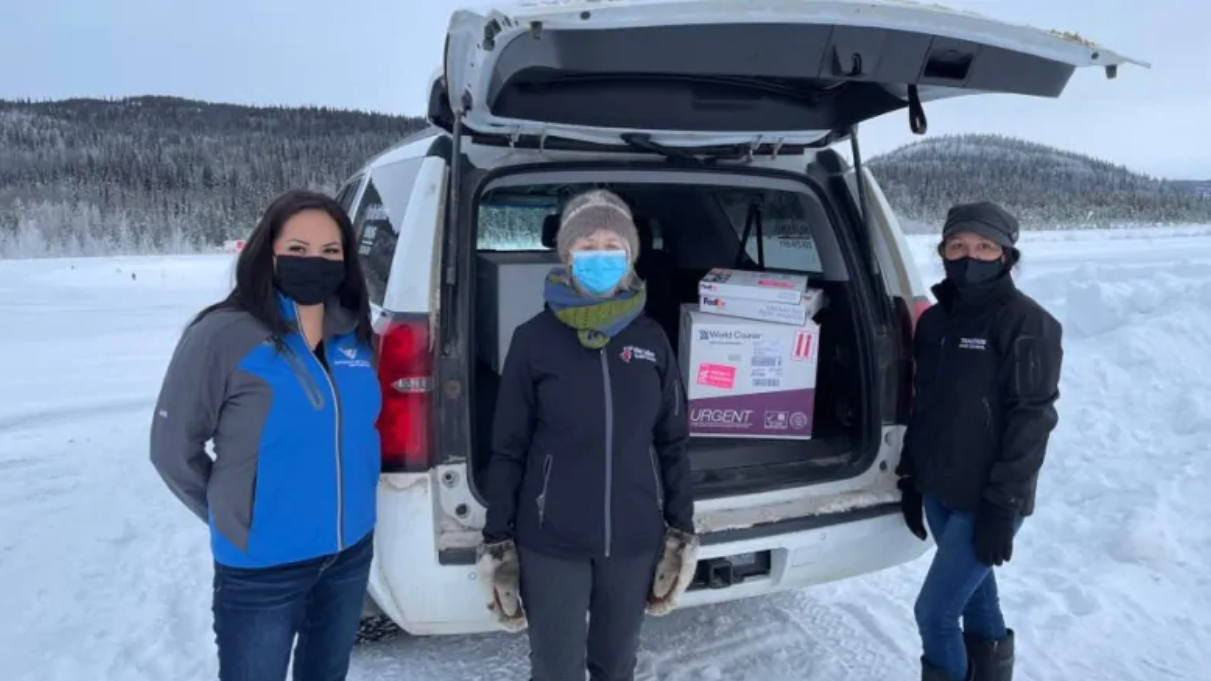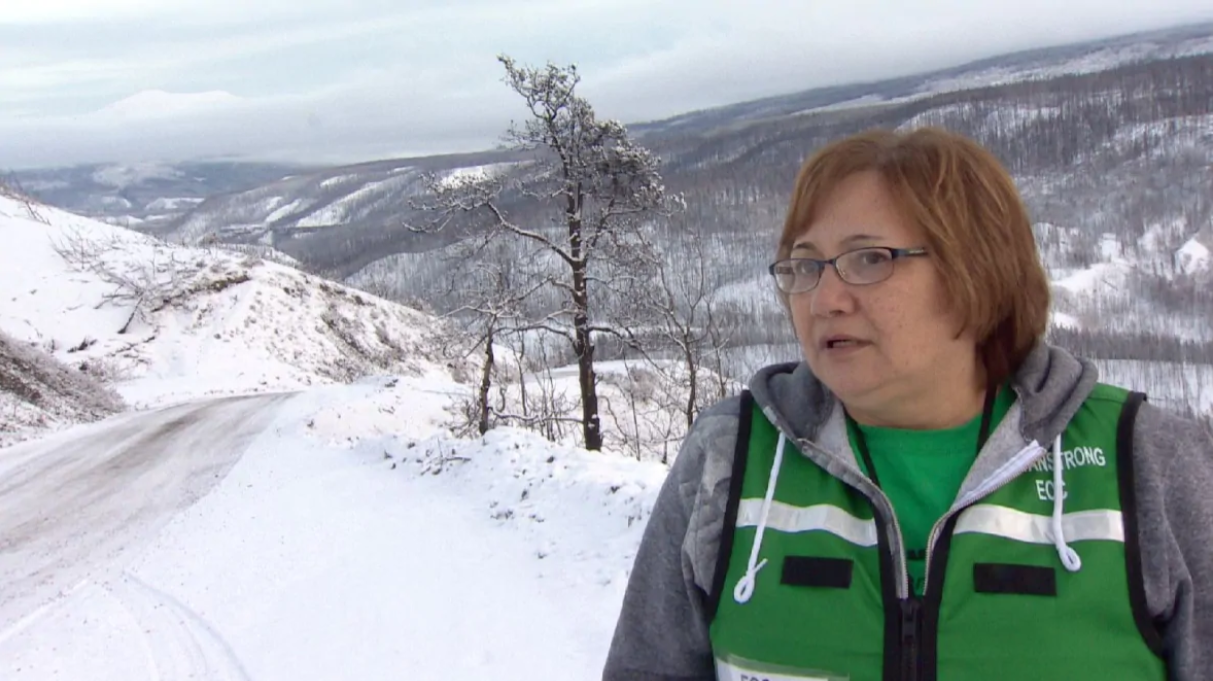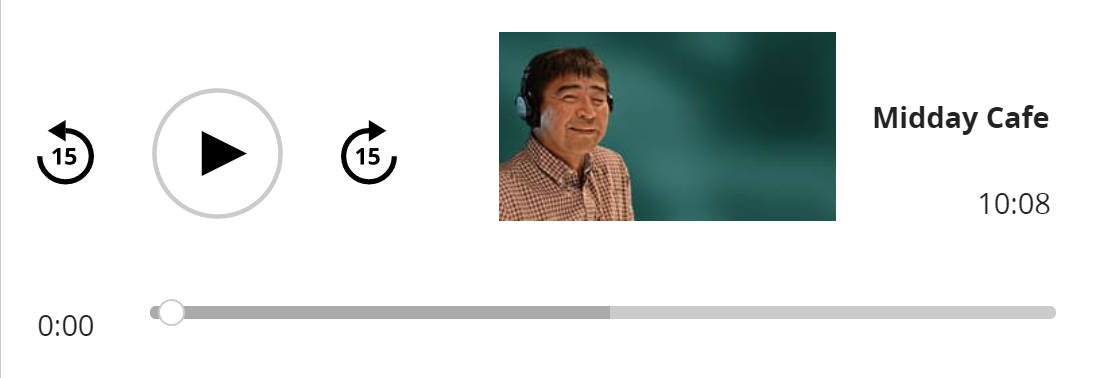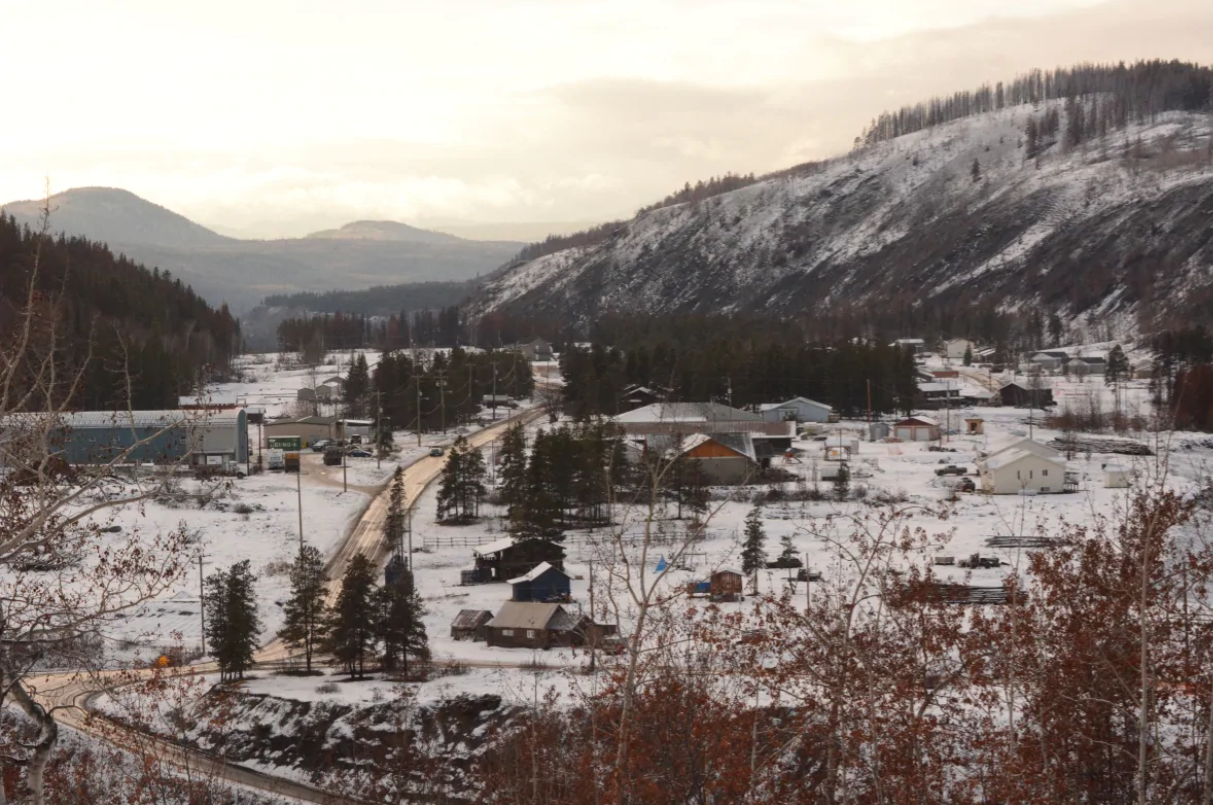CBC News | North
January 18, 2021
More than half of eligible Tahltan citizens have been vaccinated in Telegraph Creek and Iskut B.C.

Early planning and training meant inoculations could begin the day after vaccines were delivered to the Tahltan First Nation communities of Telegraph Creek and Iskut, B.C. Shown (from left to right) are Jodi Payne, Carolyn McKinnon and Nancy Quock who each played a part in the vaccine rollout in the communities. (Tahltan Central Government)
Citizens of the Tahltan First Nation in northern B.C. may well be leading the country when it comes to COVID‑19 vaccine coverage per capita.
As of Jan. 16, 407 of the First Nation’s 756 eligible citizens, or 54 per cent, have been vaccinated, according to Feddie Louie who is lead of the Tahltan emergency management committees.
“We really want to make sure that all our elders are protected. The sooner we can get everybody that wants a vaccine vaccinated, the less chance we have of our elders getting sick,” she said.
The Tahltan central government says it has received 600 doses of the COVID-19 vaccine.
Most of the doses were administered in the First Nations’ two communities, Telegraph Creek and Iskut, B.C. where vaccine clinics were set up Jan. 1, one day after they received the vaccines.
Tahltan First Nation citizens also live in nearby Dease Lake, B.C.
Louie said citizens from that community were transported to either Telegraph Creek or Iskut to receive their inoculations there.
…article continues below
Still no schedule for other, nearby communities
The delivery in Tahltan communities is far quicker than what other regions of Canada have seen and comes as nearby communities in northern B.C. are still waiting for news.
As of Jan. 18, B.C.’s Northern Health Authority says it is still working on a schedule for the northern region. This includes information about Dease Lake, Atlin, Jade City and other communities near the border of Yukon and B.C.
People in Lower Post, B.C. are set to begin receiving vaccines today.
They will be asked to travel a few minutes’ drive into Watson Lake, where their inoculations will be provided by one of Yukon’s travelling teams.

Feddie Louie is the director of the Tahltan Emergency Operations Centre. ‘We really want to make sure that all our elders are protected. The sooner we can get everybody that wants a vaccine vaccinated, the less chance we have of our elders getting sick.’ (Philippe Morin/CBC)
Community nurses trained in advance, ready to begin upon delivery
Louie says one element of the relatively speedy rollout was training and setup ahead of delivery.
A courier delivery plane landed on Dec. 29 in Dease Lake with doses of the Moderna COVID-19 vaccine, which were picked up by community nurses and driven to Telegraph Creek and Iskut. The two communities were equipped with medical-grade freezers, installed with help from the Canadian Armed Forces.
Five community nurses had already been trained and inoculations began the next day, with three nurses stationed in Telegraph Creek and two in Iskut.
Louie said nurses worked through the holidays to ensure things could begin as fast as possible upon delivery.
“We are making great progress. We’re really grateful for their dedication and commitment to our communities,” she said.
No cases so far in Tahltan communities
So far, Tahltan communities have not seen a case of COVID-19. Louie attributes this to restrictions established by Tahltan governments which have exceeded those put in place by the province of B.C.
“We kept our travel bans in place, we asked our members who don’t live here not to come here, even through the fishing and hunting season,” she said.
Tahltan government and emergency measures organizations also enacted self-isolation rules, manned gates at community entrances, and imposed mandatory mask orders for public spaces before such measures were required by the province of B.C.
‘A great sense of relief’ despite some members’ early hesitation
Louie says she has encountered some hesitation among Tahltan citizens when it comes to the vaccine.
However, opinions are changing as more and more people get inoculated without any adverse reactions.
“In the beginning there were a few people who did not want to be vaccinated. They thought Indigenous people were being used as guinea pigs. They wanted to see what happened with the long-term effects. But as more and more people got vaccinated, more and more people started coming forward and changing their minds,” Louie said.
She added that the First Nation has spent time on education, supplying members with information about the vaccine without being confrontational.
“Just letting them take their time and make the decision themselves. We don’t coerce, we just continue to support our people. People need to feel totally comfortable,” she said.
As for herself, Louie says she has already received the vaccine.
“My arm was sore for a couple days but there was a whole great sense of relief,” she said.



